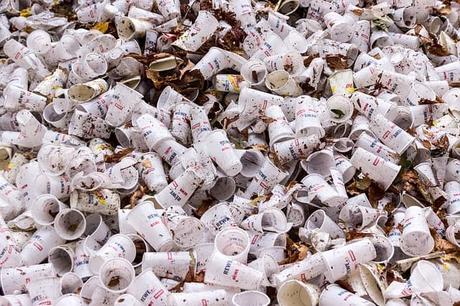Argentina is willing to become a ‘sacrificial country’ for plastic waste and changed the definition of waste in a move that could allow the country to receive waste from the rest of the world, including importing millions of tonnes of discarded plastic waste from the US.
In August, President Mauricio Macri signed a decree, reclassifying some waste and plastic scrap materials that are often dumped or incinerated as difficult to process, destined for recycling as commodities.

The decree is illegal according to social and environmental groups and bucks a global trend toward improving controls over the imports of waste, and after China started refusing all but the cleanest of shipments in late 2017, the plastics that have flooded developed nations could be now targeted towards Argentina.
Jim Puckett, the executive director of the Basel Action Network, a group that fights the export of toxic waste from industrialized societies to developing nations, said: “They’re willing to become a sacrificial country where the rest of the world could send their waste, and they could profit from it.”
Currently, the Basel Convention that governs the international waste trade has more than 180 countries as a party to it, excluding the US.
Norway proposed a recent amendment under which developed nations will not be able to export low-quality plastic waste to developing countries unless they give their explicit consent ensuring appropriate handling of the waste.
The amendments aim to ensure that even the countries, not part of it, such as the US, follow the rules of the Basel convention while sending plastic waste to poorer countries.
Pål Spillum, the deputy director-general of Norway’s environment ministry, said that countries party to Basel convention could sign agreements with the US separately if they ensure to dispose of any plastics they receive in ways not harmful to the environment and violate the convention.
Puckett noted that in recent negotiations, both Argentina and the US vocally opposed the amendments from Norway for stricter controls over the mostly unrecyclable plastics. Paired with the decree, it is a concern for him that Argentina would start accepting America’s waste.
After China’s exemplary decision to accept only the easiest-to-recycle plastics from the US, the UK, and Europe, Argentina could bridge the gap left by this decision.
US plastic waste traveled through many destinations after that transition, in late 2017. Soon after the decision, it first targeted Malaysia, Thailand, and Vietnam. When those countries stop accepting the imports, they showed up in Cambodia, Ethiopia, Ghana, Kenya, Laos, and Senegal, as revealed in a Guardian investigation. These countries previously handled virtually no US plastic.
Spillum said the proposal was meant to “increase the control of the transboundary movement of plastic waste which is not easily recyclable, and therefore likely to become an environmental problem in the country of import.”
According to a spokesperson for the US Environmental Protection Agency, the US supported the Basel convention but was against the amendments.
For plastic scrap to be exempt from the amendments, it would need to “meet a very narrow and strict set of criteria that is difficult and costly to satisfy”, the EPA spokesperson argued, continuing: “The United States is concerned that barriers to the responsible movement of plastic scrap for recycling will decrease its value and make virgin plastics more attractive by comparison, likely increasing the overall volume of disposal of plastics from the waste stream.”
The EPA said it had “just become aware” of Argentina’s new waste decree and not yet got a chance to assess its impacts.
As per Cecilia Allen, a Buenos Aires-based advocate with the Global Alliance for Incinerator Alternatives, any mixed plastics that Argentina accepted from abroad was doubtful to be recycled.
The value of recycled plastic has recently declined. Plastic recycling is more expensive than producing virgin plastic that requires the ethane gas to get pulled from underground using oil and gas drillers.
“One of the concerns we have is this can boost an incinerator industry in the country, or waste burning in cement plants,” Allen said. “We have a lot of waste here and we are not reducing, we are not recycling, we are not composting. And it makes no sense for us to open the door for more to come.”
The plastics that are burnt in the incinerators are linked to significant health problems from the air pollution they produce.
Waste pickers in Argentina, who collect plastics that are deemed worth recycling out of piles of plastics, have protested against the decree, expecting the value of the domestic plastics they retrieve will decrease.
A representative for the Argentinian waste pickers federation, Carolina Palacio, said the union has put up the fight for better working and living conditions.
“Instead of this, they deregulate and bring waste from other parts of the world. Don’t we have enough waste here?” Palacio said.

